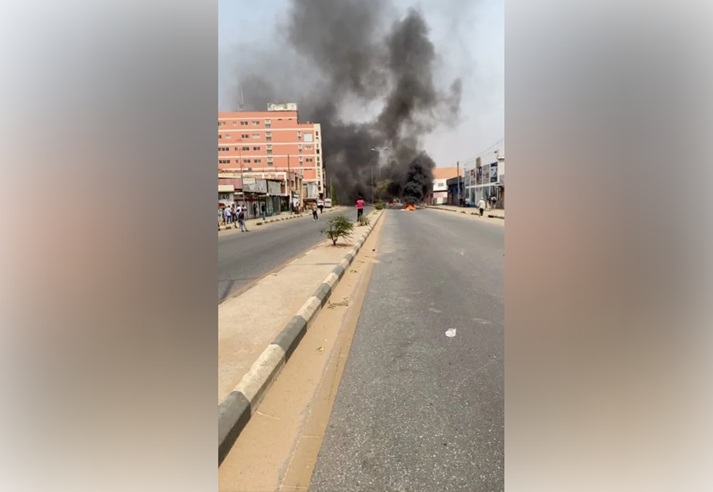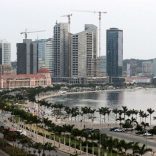Angola to buy Boeing planes in $297m US-backed deal
Angola says death toll from fuel hike protests rises to 22

FILE - Smoke rises from a makeshift barricade blocking a road as people protest over a hike in the price of diesel, in Luanda, Angola, in this screengrab taken from a social media video, July 28, 2025. [File photo: Portal Diamante Angola/via Reuters]
Angola’s government said on Wednesday that the death toll from violent protests against a fuel price hike had risen to 22 from the previous day’s estimate of four.
The unrest broke out on Monday when minibus taxi associations launched a three-day strike against a government decision to increase the price of diesel by one-third, part of efforts to curb costly subsidies and shore up public finances.
Looting, vandalism and clashes with police started in the capital Luanda, then spread to other provinces.
President Joao Lourenco’s cabinet met on Wednesday and received an update on the security situation and police response.
A presidency statement said there had been 22 deaths, 197 people injured and 1,214 arrests. Sixty-six shops and 25 vehicles had been vandalised, and some supermarkets and warehouses looted, the statement said.
Angola has been gradually removing fuel subsidies since 2023, when a petrol price hike also triggered deadly protests, encouraged by the International Monetary Fund among others.
Subsidies amounted to as much as 4% of gross domestic product (GDP) last year, according to the Southern African oil-producing country’s finance minister.
Investors are closely watching the drive to phase out subsidies.
Pieter Niesten, portfolio manager for emerging market debt at Neuberger Berman, told Reuters that fuel subsidies were estimated to account for 1.8% of GDP this year, contributing to fiscal pressures.
“Investors and international financial institutions regard subsidy reform as evidence of Angola’s commitment to difficult structural adjustments,” he said.












Leave a Reply
Be the First to Comment!
You must be logged in to post a comment.
You must be logged in to post a comment.